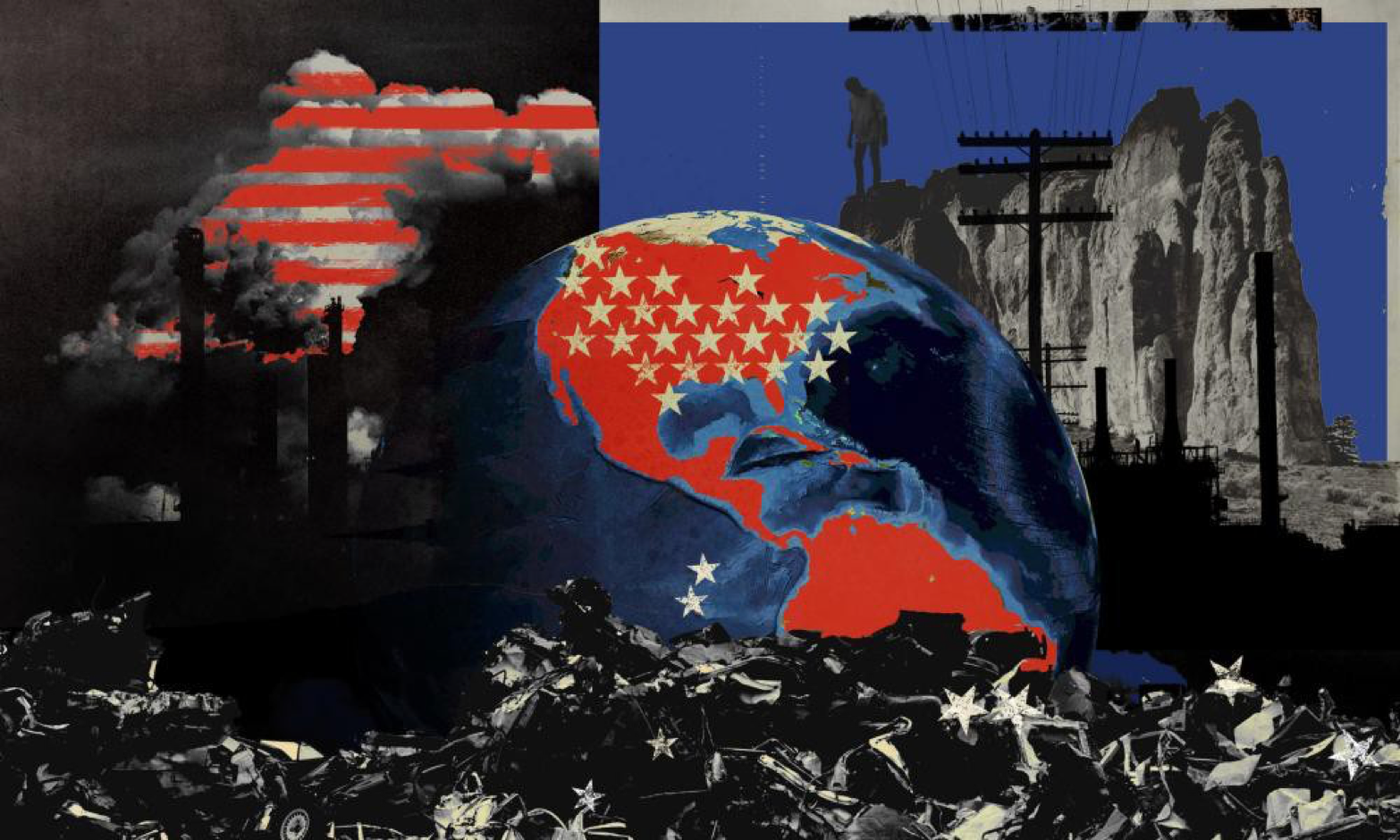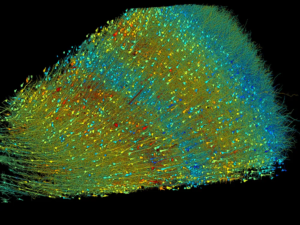It’s not just indifference. It’s an active, and deadly, cavalier attitude towards the lives of others: an example other nations follow
here are two extraordinary facts about the convention on biological diversity, whose members are meeting in Montreal now to discuss the global ecological crisis. The first is that, of the world’s 198 states, 196 are party to it. The second is the identity of those that aren’t. Take a guess. North Korea? Russia? Wrong. Both ratified the convention years ago. One is the Holy See (the Vatican). The other is the United States of America.
This is one of several major international treaties the US has refused to ratify. Among the others are crucial instruments such as the Rome statute on international crimes, the treaties banning cluster bombs and landmines, the convention on discrimination against women, the Basel convention on hazardous waste, the convention on the law of the sea, the nuclear test ban treaty, the employment policy convention and the convention on the rights of persons with disabilities.
In some cases, it is one of only a small number to refuse: the others are generally either impoverished states with little administrative capacity or vicious dictatorships. It is the only independent nation on Earth not to ratify the convention on the rights of the child. Perhaps this is because it is the only nation to sentence children to life imprisonment without parole, among many other brutal policies. While others play by the rules, the most powerful nation refuses. If this country were a person, we’d call it a psychopath. As it is not a person, we should call it what it is: a rogue state.
Through its undemocratic dominance of global governance, the US makes the rules, to a greater extent than any other state. It also does more than any other to prevent both their implementation and their enforcement. Its refusal to ratify treaties such as the convention on biological diversity provides other nations with a permanent excuse to participate in name only. Like all imperial powers, its hegemony is expressed in the assertion of its right not to care.
The question that assails those who strive for a kinder world is always the same but endlessly surprising: how do we persuade others to care? The lack of interest in resolving our existential crises, expressed by the US Senate in particular, is not a passive exceptionalism. It is an active, proud and furious refusal to care about the lives of others. This refusal has become the motive force of the old-new politics now sweeping the world. It appears to be driving a deadly, self-reinforcing political cycle.
Take the nitrogen crisis in the Netherlands. Scientists there have been warning since the 1980s that the excessive release of nitrogen compounds – primarily by agriculture – exceed the land and water’s capacity to absorb them, killing rivers, polluting groundwater, damaging soil, wiping out wild plants and causing a severe but seldom-discussed air pollution crisis. But successive governments could not be persuaded to care. Their repeated failure to act on these warnings allowed the problem to mount until it reached catastrophic levels. In 2019, a ruling by the Dutch council of state that the pollution levels breached European law obliged the government to do suddenly what its predecessors had failed to do gradually: shut down some of the major sources of this pollution.
This has triggered a furious reaction from the industries most affected, primarily livestock farming. The farmers’ protests have, like the Ottawa truckers’ strike, now become a cause célèbre for the far right all over the world. Rightwing politicians claim that the nitrogen crisis is being used as a pretext to seize land from farmers, in whom, they claim, true Dutch identity is vested, and hand it to asylum seekers and other immigrants, at the behest of “globalist” forces such as the World Economic Forum.
In other words, the issue has been co-opted by “great reset” and “great replacement” conspiracy theorists, who claim that there are deliberate policies to replace local, white people with “other cultures”. Some Dutch farmers have now adopted these themes, spreading ever more extreme conspiracy fictions, which might have helped to fuel an escalation of violence.
These themes are a reworking of long-established tropes. The notion that farming represents a “rooted” and “authentic” national identity that must be defended from “cosmopolitan” and “alien” forces was a mainstay of European fascist thought in the first half of the 20th century. Never mind that nitrogen fertilisers are now imported from Russia and livestock feed from the US and Brazil, never mind that the model of intensive livestock farming is the same all over the world: Dutch meat, eggs and milk are promoted as “local” and sometimes even “sovereign”, and said to be threatened by the forces of “globalism”.
Thanks to such failures of care over many years, we now approach multiple drastic decision points, at which governments must either implement changes in months that should have happened over decades, or watch crucial components of civic life collapse, including the most important component of all: a habitable planet. In either case, it’s a cliff edge.
As we rush towards these precipices, we are likely to see an ever more violent refusal to care. For example, if we in the rich nations are to meet our twin duties of care and responsibility, we must be prepared to accept many more refugees, who will be driven from their homes by the climate and ecological breakdown caused disproportionately by our economies. But as this displacement crisis (that could be greater than any dispossession the world has ever seen) looms, it could trigger a new wave of reactive, far-right politics, furiously rejecting the obligations accumulated by our previous failures to act. In turn, a resurgence of far-right politics would cut off meaningful environmental action. In other words, we face the threat of a self-perpetuating escalation of collapse.
This is the spiral we must seek to break. With every missed opportunity – and the signs suggest that the Montreal summit might be another grave disappointment – the scope for gentle action diminishes and the rush towards drastic decisions accelerates. Some of us have campaigned for years for soft landings. But that time has now passed. We are in the era of hard landings. We must counter the rise of indifference with an overt and conspicuous politics of care.
George Monbiot is a Guardian columnist




